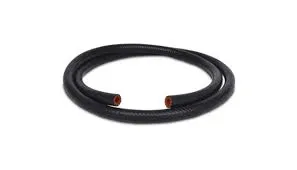Exploring the Benefits and Uses of Flexible Fuel Lines in Automotive Applications
ພ.ຈ. . 08, 2024 12:45 Back to list
Exploring the Benefits and Uses of Flexible Fuel Lines in Automotive Applications
Understanding Flex Fuel Lines and Their Importance
In recent years, the automobile industry has seen a significant shift towards more sustainable fuel options, with flex fuel vehicles (FFVs) leading the charge. These vehicles are designed to run on varying blends of ethanol and gasoline, offering an alternative to traditional fossil fuels and contributing to reduced carbon emissions. A critical component of FFVs is the flex fuel line, which plays a vital role in their functionality and performance.
What is a Flex Fuel Line?
A flex fuel line is a specialized component within a vehicle's fuel delivery system. Unlike standard fuel lines, which are typically crafted from materials suitable only for gasoline, flex fuel lines are constructed to withstand the chemical properties of both gasoline and ethanol blends. Ethanol is known to absorb moisture and can cause corrosion in traditional fuel systems; therefore, flex fuel lines must be made from durable, resistant materials.
The primary purpose of a flex fuel line is to carry the fuel from the fuel tank to the engine. Given the ability of FFVs to utilize different fuel blends, these lines must provide a reliable and efficient means of fuel delivery while ensuring the integrity of the system. Typical materials used in flex fuel lines include reinforced rubber and thermoplastic elastomers, which can endure the varying temperature and pressure conditions within the fuel system.
The Role of Flex Fuel Lines in Flex Fuel Vehicles
Flex fuel lines are crucial for the optimal performance of FFVs. As these vehicles are equipped with systems that can automatically adjust to the fuel blend being used, the reliability of the fuel delivery mechanism is paramount. When an FFV operates on E85 (a blend of 85% ethanol and 15% gasoline), the flex fuel lines facilitate the proper flow and maintain the necessary pressure, allowing for efficient combustion.
Moreover, flex fuel lines contribute to the overall safety of the vehicle
. Given that ethanol has a lower flash point than gasoline, it is essential for the fuel lines to be constructed in a way that minimizes the risk of leaks or ruptures, which could lead to hazardous situations. Engineers and manufacturers continuously test and improve these components to ensure they meet safety standards and perform effectively under various conditions.flex fuel line

Advantages of Flex Fuel Lines
One of the most significant advantages of flex fuel lines is their contribution to the versatility of flex fuel vehicles. Drivers can choose between traditional gasoline and ethanol blends based on availability and price, leading to increased consumer freedom. Furthermore, as ethanol is often domestically produced, using it can reduce dependence on foreign oil and stimulate local economies.
Additionally, flex fuel vehicles can contribute to lower greenhouse gas emissions. Ethanol burns cleaner than gasoline, leading to reduced particulate matter and pollutants in the atmosphere. By facilitating the use of ethanol, flex fuel lines support the broader goal of sustainability within the automotive sector.
Challenges and Future Development
While flex fuel lines have transformed the capabilities of FFVs, they are not without challenges. The production of ethanol is subject to fluctuations in agricultural supply and pricing, which can affect its availability and cost. Additionally, not all fuel stations offer a variety of ethanol blends, limiting consumer choice in certain areas.
To tackle these challenges, ongoing research and development are key. Innovations in lining materials and fuel delivery systems seek to optimize performance while minimizing costs. Manufacturers are also exploring ways to improve the integration of flex fuel lines within the overall vehicle structure, ensuring greater efficiency and safety.
Conclusion
In summary, flex fuel lines are integral to the operation of flex fuel vehicles, enabling them to run on a variety of fuel blends and contributing to more sustainable automotive practices. As the demand for environmentally friendly transportation continues to grow, the importance of flex fuel lines will only increase. By facilitating the use of alternative fuels like ethanol, these components not only enhance vehicle performance but also support broader societal goals surrounding energy independence and environmental conservation. The future of flex fuel technologies, aided by advancements in fuel line design, promises to make a significant impact in the quest for cleaner transportation solutions.
